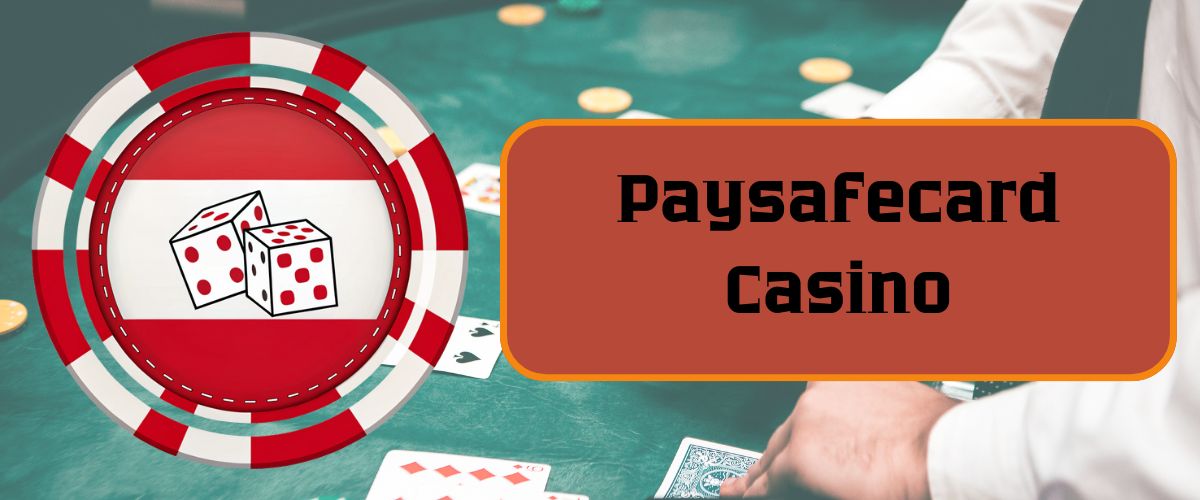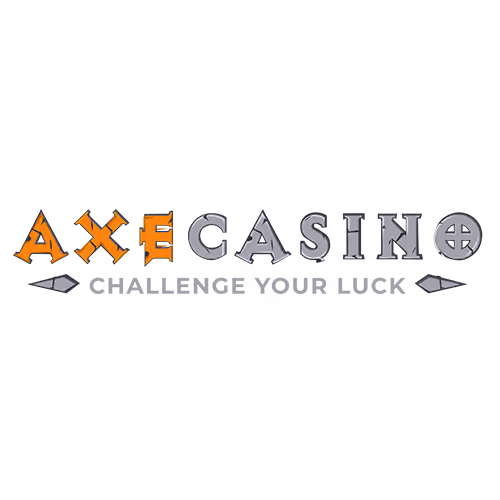Paying for stuff online without handing over your credit card details or bank info sounds impossible until you meet the prepaid voucher concept – buy a card at 7-Eleven or a gas station, get a 16-digit code, boom, you’re funded at Paysafecard Casino sites without anyone knowing who you are or where your money came from. That’s the appeal for Canadian players who value privacy or just don’t want their bank statements showing “ONLINE CASINO DEPOSIT $200” every weekend. Below, I’ll explain how Paysafecard actually works at casinos, which ones accept it properly, and why it’s both brilliant for deposits but useless for withdrawals.
Ranking the Best Paysafecard Casinos
When I test Paysafecard casinos, I’m verifying three things: do they accept it without weird restrictions, are deposits instant like advertised, and do they treat voucher users the same as card depositors for bonuses and support. Some casinos say they accept Paysafecard but bury it in payment options or exclude it from promotions – those get flagged immediately.
These picks have confirmed Paysafecard acceptance across all deposit tiers ($10 minimum common), instant processing (literally seconds), and bonus eligibility that doesn’t discriminate against prepaid vouchers. If the experience differs from standard payment methods or support treats voucher users like second-class players, it’s not here.
How I Pick Casinos for Paysafecard Users
Testing Paysafecard casinos means buying actual vouchers (usually $50-100 denominations), depositing at multiple sites, tracking processing speeds, verifying bonus eligibility. Can’t fake this with credit card testing – it’s a completely different process.
Here’s how:
- Philosophy: Prepaid voucher users deserve same treatment as card depositors – same bonuses, same support quality, same withdrawal options (where applicable).
- Testing: 30-45 days. Multiple Paysafecard deposits across denominations to verify consistency. Test if combining vouchers works smoothly.
- Registration/KYC: Check if Paysafecard deposits trigger enhanced verification (they shouldn’t immediately but might at withdrawal).
- Payments: Core focus. Are deposits truly instant? Do multiple voucher combinations work? Are there hidden fees?
- Bonuses: Critical – verify if Paysafecard qualifies for welcome offers. Many casinos exclude prepaid methods from bonuses without clear disclosure.
- Games: Same library access as other payment methods? Some sites restrict voucher depositors to limited selections.
- UX: Is Paysafecard easy to find in cashier or buried? Clear instructions provided or assumes you know the process?
- Security: Verify casino handles PINs securely. Reputable sites don’t store PIN details post-transaction.
- Support: Test if they understand Paysafecard-specific issues (combining vouchers, denomination limits, lost codes).
- Who reviews: Me, my team. Real voucher purchases from Canadian retailers, real deposits, real testing of terms.
Pros and Cons of Paysafecard at Online Casinos
Paysafecard isn’t perfect – it’s specifically designed for deposits, not full payment flexibility. Here’s the honest breakdown:
| Pros | Cons |
|---|---|
| Complete anonymity – No bank details, no personal info shared with casinos | Deposit-only – Cannot withdraw to Paysafecard; need alternative methods |
| Instant processing – Funds appear in seconds | Manual top-ups – Must buy vouchers physically or online before depositing |
| Spending control – Buy $50 voucher, can’t spend more than $50 | Lost codes = lost money – No recovery if you lose the voucher |
| No chargebacks – Casino can’t reverse transactions | Bonus exclusions common – Many sites exclude prepaid from promotions |
| Widely available – Sold at gas stations, convenience stores, Canada Post | Combination limits – Max $1,000 combined across vouchers |
| No account needed – Just the PIN code | Fees on unused balances – Paysafecard charges maintenance fees after 12 months |
| Safe for public WiFi – No sensitive data transmitted | Not all casinos accept it – Less common than Interac or cards |
Honestly? Paysafecard is perfect for privacy-conscious players or those who want strict budget control (can’t overspend what’s loaded on voucher). It sucks for anyone wanting convenient withdrawals or who gambles frequently enough that buying vouchers becomes tedious. Also, if you’re chasing big welcome bonuses, verify eligibility first – nothing worse than depositing $200 via Paysafecard only to discover the 150% match excludes prepaid methods.

Deposits and Withdrawals: How It Actually Works
Depositing with Paysafecard is stupid easy – which is the whole point. Buy a voucher (denominations: $10, $30, $50, $100, $150, $250), scratch off the panel revealing your 16-digit PIN, log into casino cashier, select Paysafecard, enter PIN, confirm. Funds appear instantly. No verification needed upfront, no waiting for bank clearance, just immediate funding. Kinda magical compared to waiting 24 hours for Interac approval or dealing with credit card declines.
Combining vouchers works if your casino deposit exceeds single voucher value. Want to deposit $300 but only have $100 and $200 vouchers? Most casinos let you combine up to $1,000 total. The process varies slightly by site but generally involves entering first PIN, then second, system combines totals automatically. I’ve tested this dozens of times – usually works smoothly, occasionally glitches requiring support intervention (annoying but resolvable).
Withdrawals though? That’s where Paysafecard becomes useless. You literally cannot withdraw to a Paysafecard voucher – it’s designed as one-way funding only. This means you must use alternative methods for cashouts: Interac e-Transfer (most common in Canada), bank wire, e-wallets like Skrill/Neteller, sometimes crypto. The friction here is real – deposit via anonymous voucher, but withdraw requires full KYC verification with ID, proof of address, sometimes source of funds documentation. Privacy advantage evaporates at withdrawal stage.
Kicker: some casinos use Paysafecard deposits as excuse for enhanced scrutiny. Their logic? “You used anonymous payment method, so we need extra verification to prevent money laundering.” Technically reasonable from compliance perspective; practically annoying when you just wanted quick deposit and suddenly they’re requesting three months of bank statements before approving your $400 withdrawal. Always verify a casino’s withdrawal policies for Paysafecard users before depositing – if they’re sketchy about it, find another site.
Real example from last year: deposited $100 via Paysafecard at an offshore casino, won $600, attempted withdrawal via Interac. They stalled for eight days requesting document after document, finally paid after I filed complaint with their Curaçao sub-licensee. Would’ve been faster with credit card deposit where my identity was already verified upfront. Privacy has a price, basically.
Limits, Rules, and Fine Print You Need to Know
Paysafecard comes with specific limitations built into how the system works – not casino rules, but Paysafecard’s own structure:
- Voucher Denominations: Available in $10, $30, $50, $100, $150, $250 CAD. Can’t customize amounts – must buy exact denominations offered.
- Combination Limit: Maximum $1,000 total when combining multiple vouchers in single transaction. Want to deposit $1,500? Requires two separate transactions.
- Casino Minimum Deposits: Most Paysafecard casinos set $10 minimum (matching smallest voucher). Some require $20-30 minimum, forcing you to buy larger denominations.
- Maximum Deposits: Vary wildly – $500 to $5,000 depending on casino. High rollers often restricted since voucher system caps at $1,000 per combination.
- Maintenance Fees: Paysafecard charges monthly fees on unused voucher balances after 12 months. Starts at $3/month, eats into remaining balance. Use vouchers quickly or lose value.
- Expiry: Vouchers technically don’t expire but maintenance fees eventually drain unused balances to zero if left dormant.
- Lost/Stolen Codes: No recovery possible. Lose the voucher = lose the money. Paysafecard can’t reverse or reissue. Treat PINs like cash.
- Bonus Eligibility: Varies by casino. Some include Paysafecard in all promotions, others exclude prepaid entirely, some allow but with higher wagering. Always verify before depositing.
- Chargebacks Impossible: Once PIN is used, transaction cannot be reversed. Good for casinos (prevents fraud), bad for players (no dispute mechanism).
- Regional Availability: Widely available across Canada but not every retailer stocks them. Urban areas easy, rural might require driving to find sellers.
- Online Purchase Fees: Buying vouchers online sometimes includes processing fees (2-5%) on top of face value. In-store purchases usually no fees.
- Anonymous My Paysafecard Accounts: Can create account linking multiple vouchers for easier management, but reduces anonymity – requires registration with email/password.
Security and Privacy: What Actually Protects You
Paysafecard’s whole selling point is security through anonymity – no bank details transmitted, no personal information shared during transactions. Here’s what that means practically:
When you buy a voucher in-store, you pay cash (or card, ironically defeating some privacy purpose). Cashier hands you physical voucher or printed receipt with 16-digit PIN. That PIN is your access credential – anyone with the code can use the balance. Paysafecard doesn’t track who bought which voucher (unless purchased online with account), making it essentially bearer instrument like cash.
Depositing at casinos involves entering PIN into casino’s payment processor (usually Paysafecard’s own gateway). Casino receives confirmation of valid transaction and funds amount but gets zero information about you from Paysafecard – no name, no address, no purchase location. Your casino account already has that info from registration, but payment method itself reveals nothing additional.
Downsides? This anonymity means no protection if voucher is stolen or lost. Credit cards have fraud protection, chargebacks, issuer support. Paysafecard has… nothing. Lose the PIN, you’ve lost the money. Someone steals your unused voucher? They can drain it completely with zero recourse. Physical security is your only protection.
Also, while Paysafecard deposit is anonymous, your casino account isn’t. They still know your name, address, email from registration. And withdrawal requires full KYC regardless of deposit method. So privacy is partial – payment method anonymity, but not account anonymity. If your goal is completely untraceable gambling (don’t do illegal stuff, folks), Paysafecard alone doesn’t achieve that.
Kicker: Canadian casinos operating under provincial regulations (Ontario’s iGaming Ontario, for example) often limit or exclude Paysafecard specifically because anonymity conflicts with enhanced due diligence requirements. Regulated sites need robust KYC; anonymous payments make that harder. Result? Paysafecard more common at offshore casinos than fully licensed Canadian operators.
About Paysafecard: The Company Behind the Vouchers
Paysafecard isn’t some sketchy startup – it’s been around since 2000 and operates globally. Here’s the corporate breakdown:
| Detail | Information |
|---|---|
| Founded | 2000 in Vienna, Austria |
| Parent Company | Paysafe Group (acquired 2013) |
| Current Ownership | Blackstone and CVC Capital Partners (private equity) |
| Headquarters | London, UK (Paysafe Group HQ) |
| Countries | Available in 50+ countries including Canada |
| Currency Support | Multiple currencies including CAD |
| Licensing | Regulated as e-money institution in various jurisdictions |
| Canadian Operations | Available nationwide; sold at major retailers |
| Daily Transaction Limit | €1,000 (roughly CAD $1,500) without My Paysafecard account |
| Customer Support | 24/7 via website, phone, email |
| Mobile App | Available for iOS and Android |
| Security Features | 16-digit PIN, optional My Paysafecard account with additional authentication |
Basically, Paysafecard is legitimate, long-established, and backed by major private equity firms. Not a fly-by-night operation that’ll disappear with your money. That said, customer support can be slow (tested this multiple times with “lost voucher” inquiries – they’re sympathetic but ultimately can’t help since system design prevents recovery).
Useful Links for Paysafecard Users
If you’re using Paysafecard for casino deposits or just want more information, these official resources help:
Paysafecard Official Canada: Main Canadian site – find retailers, check balances, learn how it works.
Paysafecard Customer Support: FAQ, contact options, troubleshooting for lost/stolen codes.
My Paysafecard Registration: Create account for easier voucher management (reduces anonymity but adds convenience).
Retail Locator: Find nearby stores selling vouchers – gas stations, convenience stores, Canada Post locations.
Responsible Gambling Council: Canadian organization for problem gambling support – 1-888-391-1111 helpline.
iGaming Ontario: Ontario’s regulated market info – check which licensed sites accept Paysafecard.
Alcohol and Gaming Commission of Ontario (AGCO): File complaints about licensed Ontario casinos, verify operator legitimacy.
Malta Gaming Authority (MGA): Verify international casino licenses, check regulatory actions.
Honestly, bookmark the Paysafecard retail locator – nothing’s worse than deciding to deposit Saturday night and discovering your usual 7-Eleven doesn’t stock vouchers anymore.
When Vouchers Beat E-Wallets (And When They Absolutely Don’t)
Here’s the thing nobody tells you upfront: Skrill Casino sites and Paysafecard casinos serve completely different use cases despite both being “alternative payment methods.” Skrill’s an e-wallet – fund it once, use repeatedly, withdraw back to it, manage everything in one app. Paysafecard’s a disposable voucher – buy per transaction, deposit once, can’t withdraw to it, physical or digital code required each time.
For casual players depositing $20-50 occasionally? Paysafecard wins on convenience and privacy. Grab a voucher at the gas station while buying chips and a Coke, fund your account, done. No app downloads, no account registration (unless you want My Paysafecard), no linking bank accounts.
For serious players depositing $200+ multiple times weekly? Neosurf Casino options or Skrill are way better. Pre-funding an e-wallet once then using it repeatedly beats buying vouchers constantly. Plus e-wallets support withdrawals – your casino winnings can go straight back to Skrill, then to your bank. Paysafecard forces you into separate withdrawal method every single time (usually Interac, sometimes painful depending on casino processing speeds).
Kicker from personal testing: I’ve used Paysafecard probably 30-40 times over the years. Great for testing new casinos without risking primary payment methods. Terrible for regular play – the voucher-buying friction gets old fast, especially when you’re mid-session, running low on balance, and nearest retailer is 15 minutes away. Privacy is cool until inconvenience outweighs benefits. Know your priorities before committing to voucher-based payments long-term.
















